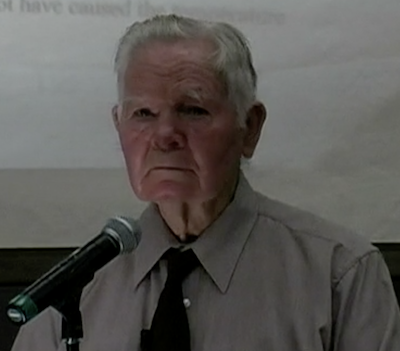The AA
Category: Motoring Organisation
The AA is the UK’s largest motoring organisation, with over 15 million members according to its website. As well as providing breakdown cover, it also offers vehicle insurance, loans and motoring advice, among other services.
Although the AA has made public comments in support of air quality measures and been a vocal backer of electric vehicles, it has also strongly criticised proposed Clean Air Zones. It lays significant responsibility with the government for encouraging diesel cars and opposes what it calls the “demonisation” of diesel vehicles.
The AA’s President Edmund King has expressed concern about low traffic neighbourhoods (LTNs) and other active travel measures introduced in 2020 in response to the COVID-19 pandemic, but has been generally supportive of active travel measures.
The AA describes its public affairs team, which represents its members’ interests to policymakers, as the “most informed group of motoring experts in the UK”.
On its website, it states that “campaigning and lobbying are at the heart of our work” and lists “stopping fuel duty rises” among its campaigning successes.
Research by Transport & Environment suggests that the UK’s 10-year freeze on fuel duty has encouraged car use and the purchase of less efficient vehicles such as SUVs. The organisation estimates that increasing fuel duty in line with inflation would have reduced CO2 emissions by 5.33 million tonnes per year long-term, equivalent to taking 2.5 million cars off the road.
The AA’s President represents the organisation on the government’s Motorists’ Forum, which brings together road transport-related trade associations and campaign groups with the government to discuss priorities.
Funding
The AA’s revenue in 2018 was £979m, according to its annual report. Its roadside assistance branch recorded revenue of £841m, with 3.21m “paid personal members” and 9.79m business customers. Revenue from its insurance business was £138m.
Air Pollution Lobbying
The AA calls air pollution a “worry for everyone, especially for those who live in urban areas or suffer from conditions like asthma”. It explains that “if someone has heart or lung issues and breathes in a lot of air pollution, their condition might become even more serious”.
On its website, it also cites a widely-reported joint study by the Royal College of Physicians and The Royal College of Paediatrics and Child Health that found around 40,000 deaths a year in the UK are linked to air pollution exposure.
Clean Air Zones
However, it has been critical of plans for charging Clean Air Zones in the most polluted UK cities. In an explanation on its website of these schemes, the AA argues that “charges and fines only go so far, especially if drivers feel they’re being punished unnecessarily.”
It makes a number of recommendations for how drivers can reduce their own emissions, which it says is where “real change” occurs. These include avoiding “idling”, lowering your speed, walking or cycling for shorter journeys, and keeping your car in good condition.
Although experts agree these measures can help reduce air pollution, organisations such as the British Lung Foundation argue charging Clean Air Zones are the “most effective and quickest way to reach legal limits”. Research by the Centre for Cities shows that schemes like London’s Ultra Low Emission Zone have cut NO2 concentrations significantly.
Ahead of the 2020 Budget, the organisation argued drivers were confused by the UK’s clean air policies as a result of councils setting up “vastly different” Clean Air Zones and said this was encouraging drivers to stick with “older, more polluting cars”.
In 2019, the AA’s President Edmund King argued that CAZ schemes could lead to HGVs being replaced by multiple vans, causing more congestion and pollution. He said that a minor increase in van traffic in recent years “provides insight into how freight companies might be changing their fleets in the wake of CAZ”.
In 2017, the AA said it was “pleased” that a government consultation on CAZs “makes it clear that such schemes must be a policy of last resort rather than introduced by default”. It also claimed a majority of drivers view charging zones as “money-making schemes”.
Speaking to DeSmog, an AA spokesperson said the organisation did not oppose CAZs as long as they had been through a proper review process but said they were not a “silver bullet”.
Low Traffic Neighbourhoods
AA President Edmund King has made a number of statements regarding LTNs and active travel measures. While King has cautioned against potential negative impacts and “unintended consequences” of low traffic neighbourhoods (LTNs), he has also said he supports an increase in active travel after the COVID-19 pandemic.
Speaking to The Independent in January 2021, King stated that people should cycle more, walk more, and drive less as the country returns to normal after the pandemic. He said: “You can walk, you can cycle. And one of the good things during lockdown is seeing far more people cycling”.
He continued: “So when this all passes, hopefully some of us can think about not being so dependent on the car and using the best means for the best journey. Often that’s using two feet or two wheels”. He also noted that multi-car households could decline and that “many people could relatively easily switch to electric”.
In September 2020, King wrote to Secretary of State for Transport, Grant Shapps, stating that active travel schemes were “regrettably adding to congestion and poorer air quality rather than improving them”.
He added: “Unfortunately, the lack of consultation is leading to growing levels of dissatisfaction and frustration across many road users, including some emergency services”.
King warned in August 2020 that the return of the school run “could see localised gridlock with limited public transport, more cars and less road space due to ‘pop-up’ closures”.
In July 2020, in response to emergency active travel measures implemented during the COVID-19 pandemic, King stated that councils should not be afraid to review and roll back active travel schemes, including LTNs and pop-up cycle lanes, if they had “unintended consequences such as increased congestion and delivery restrictions on local businesses who are desperate to bounce back and aid the economic recovery”.
Diesel Vehicles
The AA notes on its website that diesel vehicles “produce lots of soot (particulate matter) that can cause respiratory problems and contribute to the risk of cardiovascular diseases”. It acknowledges that while modern diesels have to be fitted with a “Diesel Particulate Filter”, and that there is an aim for an “80% cut in particle emissions”, the technology is “not without problems” and the AA’s “patrols are often called to cars with a blocked DPF”.
Elsewhere, it acknowledges that “diesel exhausts aren’t as clean as the standards, which new cars have to meet before they go on sale, predicted they should be”.
It nevertheless claims diesel vehicles are “still the best choice for many” and that there has been a “’demonisation’ of diesel in the press”.
In 2018, it jointly commissioned a report with BT Fleet Solutions, a vehicle maintenance and leasing company, that found vehicle fleet managers were frustrated with “anti-diesel rhetoric”. It also criticised the government’s “potentially fragmented clean air policy”, with schemes being decided at the local level.
It has also frequently blamed previous governments’ support for diesel vehicles as a means of reducing greenhouse gas emissions for contributing to the air pollution problem.
AA President Edmund King has criticised the “dash for diesel” that occurred under Tony Blair’s Labour government and claimed that many of the people who purchased diesel cars live in suburban areas and are now “finding that they could be clobbered by low emissions zones or extra parking charges”.
On National Clean Air Day in 2017, the AA called for a national diesel scrappage scheme in its submission to a government consultation on air quality, among a range of other measures.
The same year, the King said “demonising” diesel cars was “the easy position to take”, arguing the technology “still has an important role to play in transport and services”. He claimed that the latest Euro 6 diesel models produce “less NOx than a 10-15 year-old petrol car”, so some air quality schemes were illogical.
Research on cars’ “real-world” emissions published by the International Council on Clean Transportation in 2018 found that Euro 6 diesel vehicles had significantly higher NOx emissions than petrol equivalents and exceeded emissions limits.
The AA has also criticised government plans to bring the ban on new diesel, petrol and hybrid cars from 2040 to 2035 or earlier. It called them “stretched targets” and said they were “incredibly challenging”, doubting whether there would be “sufficient supply of a full cross section of zero-emissions vehicles in less than fifteen years”.
Electric Vehicles
Following the 2020 Budget, the AA praised a new £900m research and development fund for electric vehicles but said the Chancellor could have been “bolder” by removing VAT on EVs, which the AA had been calling for.
The AA’s President Edmund King also said in January 2020 that “making it easier to swap a petrol or diesel car for an electric car needs to be at the forefront of the Budget”, calling for a large increase in rapid charging points and support for new EV battery “gigafactories”.
King has also made positive comments about EVs publicly, telling a conference in 2018 that there needed to be a “more concerted effort by us all to sell the benefits of electric vehicles” and dispel some of the “myths”.
He has also tried to allay concerns about EVs’ range, noting in 2017 that 300 charging points were being added every month and arguing that EVs are “capable of meeting many people’s weekly, let alone daily, mileage on a single charge”.
Hybrid Vehicles
The AA has frequently defended hybrids as an important “transition” technology between pure combustion engines and EVs. Its President has called plug-in hybrids a “positive stepping-stone to full EVs”.
Reacting to the news that the sale of new hybrid vehicles could also be banned from 2035, along with petrol and diesel cars, the AA’s Edmund King said manufacturers were “spending billions on developing state-of-the-art hybrids which are zero emissions for many journeys”. He called it a “very backward step that could backfire by encouraging drivers to hold on to older more polluting vehicles”.
Hybrids have been criticised by environmental campaigners because their emissions savings can be quickly wiped out by driving in petrol or diesel mode, while “extended-range” electric vehicles can arguably offer the same benefits in terms of mileage.
Fuel Duty
The AA has been a long-time opponent of any increases in fuel duty. Reacting to the 2020 Budget, the AA said it was “pleased the Chancellor has listened to our calls to maintain the freeze in fuel duty” and called its £27bn investment in roads “fantastic news”.
Research by Transport & Environment suggests that the ten-year freeze on fuel duty has encouraged car use and the purchase of less efficient vehicles such as SUVs. The organisation estimates that increasing fuel duty in line with inflation would have reduced CO2 emissions by 5.33 million tonnes per year long-term, equivalent to taking 2.5 million cars off the road.
Key Arguments in Order of Prominence
- Charging Clean Air Zones (CAZs) should be a last resort after all other options have been exhausted
- Drivers are confused by proposed CAZs because they differ across the country
- CAZs could cause an increase in van traffic as hauliers move freight off heavy-goods vehicles (HGVs), worsening congestion and pollution
- Heavier polluters like HGVs, vans and taxis should be targeted before private cars
- CAZs are insufficient – changes to driver behaviour are where real change happens
- CAZs will hit the least well off and other vulnerable people such as pensioners
- Charging diesel users will impact essential public services such as ambulances and fire engines
- CAZs look like congestion charging “through the back door”
- Local authorities could keep charging drivers just to pay for the maintenance of the zones
Areas Active
Birmingham: the AA criticised the council in February 2020 for installing signs about the city’s Clean Air Zone, due to be implemented in the summer. An AA spokesman said it was “stupid and utterly confusing” for them to be put up before the scheme came into force and said the signs were “being used to scare people from coming into the city”.
The spokesman also criticised the planned CAZ itself, saying it would “discriminate against people who are less able to buy replacement vehicles” and claiming that “many pensioners will be hit”.
He also noted that some other cities are “only looking at charging the heavier polluters first – such as lorries, vans and taxis”.
An AA spokesperson told DeSmog it wanted to see more support provided to low-income households in Birmingham.
Bradford: the AA was listed among a number of organisations that the council would be meeting with to consult on plans for a charging CAZ in the city.
Bristol: the AA criticised proposals to ban private diesel cars from the city centre during the day, arguing: “diesel is the fuel used not only by ambulances, fire engines and buses but also essential services such as breakdown rescue, firms that make urgent deliveries such as to pharmacies, that unblock drains, plumbers and others that residents depend on.” Vans, buses and emergency vehicles are not included in the ban.
An AA spokesperson told DeSmog it did not make sense for a 12 year old petrol car to be able to drive into the city centre while modern diesel cars were not.
Leeds: the AA’s public affairs spokesman Luke Bosdet suggested the city’s planned CAZ could amount to “congestion charging through the back door”. He also claimed the cost of maintaining the cameras used to enforce the charges could mean the council would “need to catch drivers to pay for their upkeep”.
London: the AA criticised plans to expand the city’s ULEZ from 2021. Its director of fleet and SME services said that “some businesses may struggle to budget for this radical step in terms of increased costs”, arguing that there was “too much stick and not enough carrot” in the plans.
An AA spokesperson told DeSmog that the organisation was “not wholly supportive” of an expanded ULEZ but declined to say what support measures would be sufficient for it to back the scheme.
Southampton: in a call for a nationwide diesel scrappage scheme, the AA’s Edmund King said diesel vehicles were “certainly not the only source” and gave the example of moving ships docked in the city away from running on diesel generators and onto so-called “shore power”.
Key Actions
January 2021
Speaking to The Independent, AA President Edmund King stated that people should cycle more, walk more, and drive less as the country returns to normal after the pandemic. “You can walk, you can cycle. And one of the good things during lockdown is seeing far more people cycling”.
He continued:
“So when this all passes, hopefully some of us can think about not being so dependent on the car and using the best means for the best journey. Often that’s using two feet or two wheels.”
King also noted that multi-car households could decline and that “many people could relatively easily switch to electric”.
September 2020
In September 2020, King wrote a letter to Secretary of State for Transport, Grant Shapps, stating that active travel schemes, which include low traffic neighbourhoods (LTNs), were “regrettably adding to congestion and poorer air quality rather than improving them”.
August 2020
In response to emergency active travel measures implemented during the COVID-19 pandemic, including low traffic neighbourhoods (LTNs), King warned that the return of the school run “could see localised gridlock with limited public transport, more cars and less road space due to ‘pop-up’ closures.”
September 20, 2018
The AA jointly commissioned a report with BT Fleet Solutions, a vehicle maintenance and leasing company, that found high levels of frustration with “anti-diesel rhetoric” among vehicle fleet managers. It also criticised the government for its “potentially fragmented clean air policy” that allows local authorities to implement measures according to local need.
June 15, 2017
On National Clean Air Day, the AA called for a national diesel scrappage scheme in its submission to the government’s consultation on its air quality strategy, among a range of other measures.






